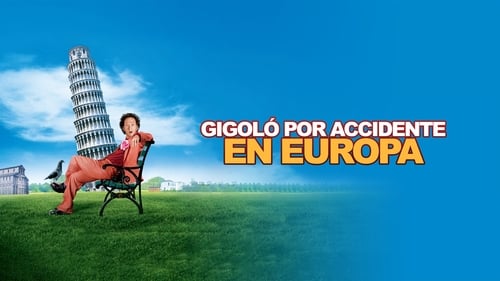
Underwater Camera
Deuce (Rob Schneider), un limpiador de peceras ingenuo y de buen corazón, creía que su carrera de gigoló había terminado. Pero cuando se veía lejos de todo aquello, es tentado a regresar a su increíble profesión de 'placer pagado'. Hicks (Eddie Griffin), su antiguo proxeneta, se ve implicado en los asesinatos de los gigolós más prestigiosos de Europa. Deuce se ve obligado a regresar como espía de incógnito para limpiar el nombre de su gran amigo. Para conseguir sus propósitos, éste debe competir con la poderosa Unidad Europea de Prostitutos e incluso exponerse a otra serie de estrafalarias clientes. Entre todos estos líos, conoce a la hermosa Eva (Hanna Verboom), que sufre de un desorden crónico obsesivo-compulsivo y a su vez es extremadamente talentosa.

Cinematography
The importance of the Atelier as a meeting and working-place for independent or beginning filmmakers is highlighted in Last days of Studio Frans van de Staak a necrology of his films by Kees Hin (2002), which focuses mainly on Van de Staak's non-naturalistic style of directing actors.

Cinematography
The protagonist in the film is an actor (René van het Hof) who is acting his life. He is a nuisance, but only for those who have had enough of his play acting or who are ashamed to be around this clown. His wife breaks up with him because she just can't tolerate the man any more and he seems to accept that in an apparently matter-of-fact way. He leaves the city for a cottage in the countryside.

Director of Photography
An actress and an actor overhear parts of the play "Three Travelers Watch Sunrise" by Wallace Stevens (1879-1955). The dialogues of the three [Chinese] travelers and the girl [Anna] are spoken as a monologue by the actress. The actor just listens but occasionally he gives her instructions.

Cinematography
Every scene of the film comprises a dialogue between a man and a woman. The dialogues are fragmentary, in other words, the dialogue in one scene does not tie in with that of the next. In addition there is no development in the relationship between the actor and the actress towards a happy or unhappy ending. The dialogues are not only of substantial interest; it is above all material for the actors. The film balances on the boundary between portraying an intimate relationship between a woman and a man and the intimacy in the acting between the actor and actress. When an actor or actress hardly has any words in a scene, he or she portrays loneliness; when he/she has a monologue, then the attention is focused on speaking the text, on (the reflection about) being an actor. (Wim Schlebaum

Cinematography
Tragicomedy about two brothers who married two sisters, walking the streets of Deventer at night lamenting the fact that each should have married the other one's wife.

Cinematography
The film is adapted from a play by Cyrille Offermans Lichtenberg, scenes at the dawn of a new era". Although the protagonist shares some features with the experimental physicist and writer George Christoph Lichtenberg (1742-1799), who wrote the famous Sudelbücher and numerous letters, the film does not pretend any historical accuracy with respect to the real Lichtenberg, but focuses on Offermans' hybrid [partial fictitious] personage. The result is not an interplay between fact and fiction, but a sort of view of Lichtenberg, mouthing some 19th- and 20th- century authors he couldn't have known, strictly speaking, but whose alleged fantastic formulations seem to follow from his own writings in a natural way.

Cinematography

Director of Photography
A tasty, vulgar, low-budget, urban road movie about a satirical drawn art environment with great impromptu renditions and Peter Falk detective pastiche Wingers to lick your thumbs and fingers. The American-Dutch psychiatrist Bold Wasser plays in his role as Detective Scotty all professional actors of the cloth. Long plan sequence shots give the film an almost documentary, authentic appearance.







